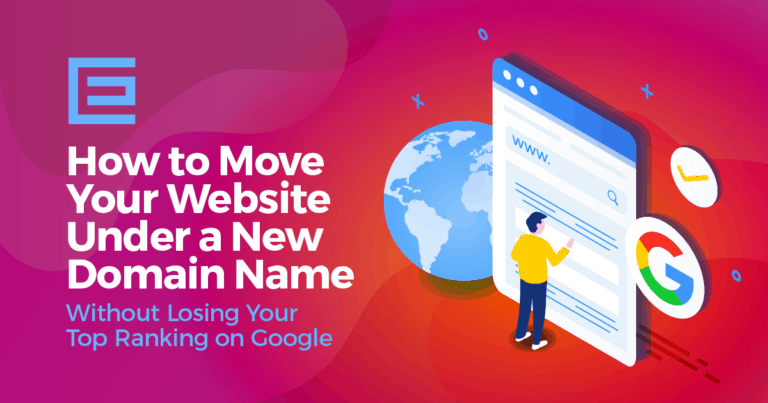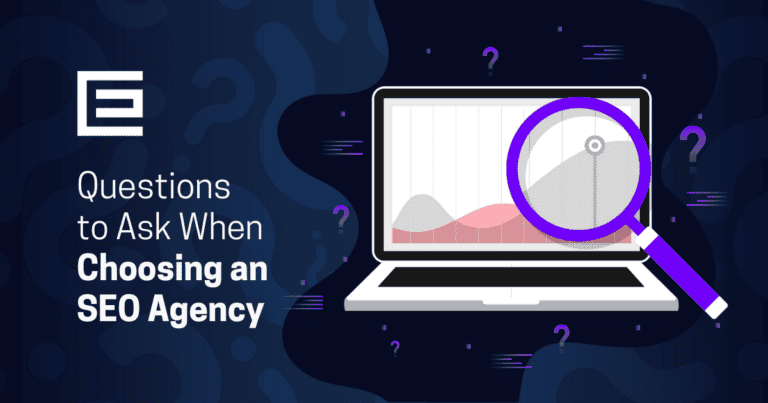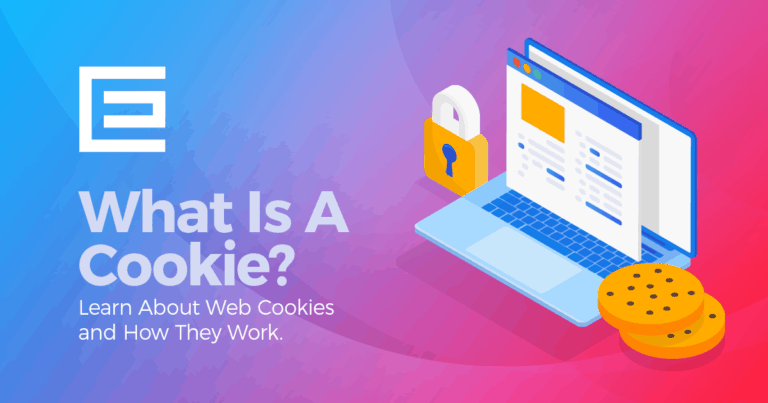Have you ever wondered exactly what a blog is? Sure, you’ve probably stumbled across a few, maybe even read some regularly, but what really makes a blog a blog? Gone are the days when blogs were just online diaries – today, they’re so much more. They’re the cornerstones of content marketing strategies, the go-to for sharing personal stories or expertise, and let’s not forget, a great way to connect with like-minded people. Whether you’re thinking of starting your own blog, looking to sharpen your digital marketing skills, or just plain curious, it’s time to dive deep into the world of blogging. Let’s unpack what a blog really is, how it’s evolved over the years, and why it might just be the thing you didn’t know you needed in your life.
Definition of a Blog
Origin of the Term “Blog”
The term “blog” is a shortened version of “weblog,” a phrase coined in the late 1990s. Initially, it was used to describe websites where individuals would log their daily activities or thoughts, much like a journal or diary, but online. Jorn Barger, an early internet enthusiast, is credited with coining the term “weblog” in 1997, which was later truncated to “blog” by Peter Merholz in 1999. These early blogs were primarily personal in nature and served as a platform for individuals to express and share their views with a wider audience.
Modern Definition of a Blog
Fast forward to the present, and the definition of a blog has expanded significantly. Today, a blog is recognized as a regularly updated website or section of a website, often run by an individual or small group, that is written in an informal or conversational style. Blogs now serve a variety of purposes, from providing news updates and expert opinions to showcasing hobbies and promoting businesses. The key characteristics of modern blogs include frequent updates, informal language, and opportunities for readers to engage through comments and discussions.
Types of Blogs
Blogs come in various forms, each serving different purposes and audiences:
- Personal Blogs: These are the descendants of the original weblog concept. Personal blogs are online diaries or journals where individuals share their life experiences, thoughts, and feelings. They can range from travel and lifestyle to food and hobbies.
- Business Blogs: These blogs are used by companies and entrepreneurs as a part of their digital marketing strategy. Business blogs focus on industry-related content, aiming to attract potential customers through search engine optimization (SEO) and establish the company as an authority in its field.
- Niche Blogs: Niche blogs cater to specific topics or audiences. They focus on particular subjects like technology, fashion, beauty, health, finance, or any other specific interest area. These blogs often attract a dedicated and engaged audience due to their specialized content.
Each type of blog has its unique style and audience, but they all share the common goal of connecting with readers through engaging and relevant content. Whether it’s a personal story, a business insight, or a niche interest, blogs offer a platform for expression and communication in the digital age.
History of Blogging
Early Examples of Blogs
The roots of blogging trace back to the early days of the internet when it was a burgeoning new technology. One of the first known examples of a blog was created by Justin Hall, a Swarthmore College student, who in 1994 started a personal web page called “Links.net.” It was essentially an online diary where he shared his thoughts and experiences. Following this, in 1997, a programmer named Dave Winer created “Scripting News,” which is often credited as one of the earliest examples of a blog in its more modern format. These early blogs were rudimentary by today’s standards, often requiring knowledge of HTML and File Transfer Protocol (FTP) to update.
Evolution of Blogging Over the Years
The late 1990s and early 2000s marked a significant evolution in the world of blogging. The introduction of platforms like LiveJournal in 1999 and Blogger.com in 1999 (later acquired by Google in 2003) revolutionized the way blogs were created and maintained. These platforms eliminated the need for technical know-how, making blogging accessible to a broader audience. The early 2000s saw a surge in the popularity of blogs, with millions of people around the world starting their blogs. This era also witnessed the diversification of blog content, ranging from politics and news to hobbies and niche interests.
The Shift from Personal Diaries to Professional Platforms
Initially, blogs were primarily seen as personal diaries or hobbyist platforms. However, as their popularity grew, so did their potential for professional use. The mid-2000s marked a significant shift as businesses and entrepreneurs began to recognize the value of blogs as tools for marketing, customer engagement, and thought leadership.
This period saw the emergence of professional bloggers and influencers who leveraged blogs to build personal brands and generate income through advertising, sponsorships, and affiliate marketing. Today, blogging is an integral part of the digital marketing landscape, with businesses of all sizes using blogs to enhance their online presence, improve SEO, and establish themselves as authorities in their respective industries.
Elements of a Blog
Blog Structure
At its core, a blog is composed of posts, which are individual entries or articles that are typically organized in reverse chronological order, with the most recent posts appearing first. This structure makes it easy for readers to see the latest content as soon as they visit the blog.
- Posts: These are the heart of any blog, where the main content is published. Posts can vary in length and style, depending on the blog’s focus and audience.
- Comments: This feature allows readers to engage with the blog’s content by leaving their thoughts, questions, or feedback on individual posts. Comments foster a sense of community and interaction between the blogger and their audience.
- Categories: To help organize content and improve navigability, posts are often sorted into categories. These categories can range from broad topics like ‘Travel’ or ‘Technology’ to more specific ones like ‘Vegan Recipes’ or ‘Smartphone Reviews.’
Typical Features
Blogs come equipped with several features that enhance functionality and user engagement:
- RSS Feeds: RSS (Really Simple Syndication) feeds allow readers to subscribe to the blog and receive updates whenever new content is posted. This feature keeps the audience connected and informed about the latest posts without having to constantly check the blog for updates.
- Social Sharing Buttons: These are crucial for increasing a blog’s reach and visibility. Social sharing buttons enable readers to easily share blog posts on their social media platforms, thereby attracting a wider audience and driving more traffic to the blog.
Blogging Platforms
Choosing the right blogging platform is crucial as it can significantly impact the ease of use, functionality, and customization of a blog. Some of the most popular platforms include:
- WordPress: WordPress is one of the most popular blogging platforms, known for its flexibility and a vast array of customization options. It caters to both beginners and advanced users with its user-friendly interface and extensive plugin ecosystem.
- Blogger: Owned by Google, Blogger is a free platform that offers a straightforward setup and basic blogging functionalities, making it a good choice for casual bloggers.
- Wix: Wix is known for its drag-and-drop website builder, which allows for easy creation of visually appealing blogs without the need for coding skills. It’s ideal for bloggers who prioritize design and simplicity.
Each platform has its unique features and limitations, so the choice depends on the blogger’s specific needs, technical skills, and the level of customization they desire for their blog.
Blogging vs. Other Web Formats
Differences Between Blogs, Websites, and Forums
While blogs, websites, and forums are all integral parts of the internet, they serve different purposes and have distinct characteristics:
- Blogs: A blog is a type of website with content presented in a conversational style, typically written by an individual or a small group. Blogs are characterized by regular updates, informal language, and the ability to engage readers through comments. They are often focused on a particular topic or a range of subjects and are used for sharing personal experiences, expertise, or company news.
- Websites: In contrast, a website is a broader concept that encompasses all online platforms, including blogs. Websites can be anything from a single static page to complex portals with multiple pages and functionalities. They are usually more formal and professional than blogs and are designed for various purposes like providing corporate information, e-commerce, or offering services.
- Forums: Forums are online platforms where people can start discussions and reply to each other in a message board format. Unlike blogs, where the content is created by the blog owner and comments are secondary, forums are driven primarily by user-generated content and discussions.
Unique Characteristics of Blogs
Blogs have several unique features that set them apart from other web formats:
- Personal Touch and Voice: Blogs often reflect the personality and voice of the author, creating a more personal connection with the readers.
- Regular Updates: Blogs are updated regularly with new posts, keeping the content fresh and engaging.
- Reader Engagement: Blogs encourage interaction through comments, allowing a two-way conversation between the blogger and the audience.
- SEO Advantage: Due to their dynamic nature and fresh content, blogs are typically favored by search engines, making them powerful tools for SEO.
Blogs vs. Social Media Platforms
Blogs and social media platforms are both mediums for sharing content, but they differ in control, content depth, and audience engagement:
- Control: Bloggers have complete control over their content and presentation on their blog, unlike on social media platforms where the layout and functionality are determined by the platform.
- Content Depth: Blogs allow for longer, more in-depth content compared to the typically shorter and more transient content found on social media.
- Audience Engagement: While both blogs and social media platforms facilitate audience engagement, the nature of interaction differs. Social media often leads to brief, rapid-fire interactions, whereas blogs can foster more in-depth discussions and build a loyal readership over time.
In summary, while blogs, websites, forums, and social media platforms are all important for online presence, each serves a unique purpose and offers different benefits. Blogs stand out for their personal touch, regular updates, and strong potential for reader engagement and SEO.
Purposes of Blogging
Personal Expression and Sharing Experiences
One of the most traditional and enduring purposes of blogging is personal expression. Blogs offer individuals a platform to share their life experiences, thoughts, and passions with a wider audience. This form of blogging can range from travel diaries and hobby-related content to more introspective reflections on life events and personal growth. The key aspect here is the blogger’s voice and authenticity, which often resonates with readers on a personal level, creating a sense of community and connection. Personal blogs can also serve as a digital archive, documenting significant life moments and thoughts, preserving them for future reflection.
Business and Marketing Strategies
In the business world, blogging has evolved into a strategic tool for marketing and brand promotion. Companies use blogs to engage with their customers, provide updates about products or services, and share industry insights. This approach helps businesses establish authority in their field, improve their online visibility, and enhance their brand’s credibility. Blogs are also a crucial part of content marketing strategies, as they drive traffic to websites through organic search. By incorporating SEO best practices, businesses can use their blogs to rank higher in search engine results, attract potential customers, and ultimately drive sales and growth.
Educational and Informational Resources
Blogs have become significant sources of education and information across various fields. Educational blogs can range from academic topics and research updates to practical advice and how-to guides. Experts and enthusiasts alike use blogs to disseminate knowledge, share findings, and discuss trends in their respective areas of expertise. For readers, these blogs become go-to resources for learning new skills, staying updated on industry news, or exploring new interests. Educational blogs not only contribute to the spread of knowledge but also encourage lifelong learning and curiosity among their audience.
Starting a Blog
Choosing a Niche and Target Audience
The first step in starting a blog is to choose a niche, a focused topic or area that you are passionate about or have expertise in. This could range from personal interests like travel, food, or fashion to more professional topics like technology, marketing, or health and wellness.
The key is to select a niche that not only interests you but also has a potential audience. Once the niche is decided, identifying your target audience is crucial. Understanding who your readers are, what they are interested in, and what problems they are looking to solve will guide your content creation and help you build a loyal readership. A well-defined niche and a clear understanding of your target audience are essential for creating relevant and engaging content.
Selecting a Blogging Platform
The next step is choosing the right blogging platform. There are several platforms available, each with its unique features and benefits. Popular options include WordPress, Blogger, and Wix.
WordPress, for instance, is highly customizable and has a vast array of themes and plugins, making it a favorite among many bloggers. Blogger is known for its simplicity and integration with Google services. Wix offers a user-friendly drag-and-drop interface for those who prioritize design and ease of use.
When selecting a platform, consider factors like ease of use, customization options, SEO capabilities, and cost. The right platform will depend on your technical skills, the level of control and customization you want, and your long-term blogging goals.
Content Creation Strategies
Creating compelling content is at the heart of blogging. To start, develop a content strategy that aligns with your niche and audience interests. This involves planning topics that are not only engaging and informative but also optimized for search engines to increase visibility.
Utilize keyword research to understand what your audience is searching for and tailor your content to meet those needs. Consistency is key in blogging, so create an editorial calendar to schedule regular posts and maintain a steady flow of content.
Additionally, your content should be well-written, visually appealing, and provide value to your readers. Incorporating multimedia elements like images, videos, and infographics can enhance the appeal of your posts. Engaging with your audience through comments and social media can also provide insights for future content and help build a community around your blog.
Benefits of Blogging
For Individuals: Creative Outlet and Building a Personal Brand
Blogging offers numerous benefits for individuals, chief among them being a platform for creative expression. It allows people to share their thoughts, experiences, and passions with a wider audience, turning a personal hobby or interest into a public discourse. This expression can be therapeutic and fulfilling, providing a sense of accomplishment and a creative outlet.
Moreover, blogging is an effective way to build a personal brand. By consistently producing content that resonates with a target audience, individuals can establish themselves as thought leaders or experts in their chosen field. This recognition can open up opportunities for networking, career advancement, and even monetization through sponsored content, affiliate marketing, or product sales. A well-maintained blog reflects an individual’s skills, passions, and expertise, serving as a dynamic portfolio or resume.
For Businesses: SEO Benefits, Lead Generation, and Authority Building
For businesses, the advantages of blogging are substantial, particularly in terms of digital marketing and online presence.
- SEO Benefits: Regularly updated blogs provide fresh content for search engines to index, which is crucial for improving a website’s search engine rankings. By incorporating relevant keywords, addressing popular search queries, and consistently publishing quality content, blogs can significantly enhance a business’s visibility online. This increased visibility leads to higher traffic, which is essential for any digital marketing strategy.
- Lead Generation: A blog can be a powerful tool for lead generation. By offering valuable information, insights, or solutions through blog posts, businesses can attract potential customers. Incorporating calls-to-action (CTAs) within blog posts encourages readers to engage further with the business, whether by subscribing to a newsletter, downloading a resource, or inquiring about a service or product. This process turns casual readers into potential leads.
- Authority Building: Blogs allow businesses to showcase their expertise and knowledge in their industry. By providing informative, well-researched, and expert content, a business can establish itself as an authority in its field. This credibility is crucial for building trust with both current and potential customers. When consumers view a company as a reliable source of information, they are more likely to trust the company with their business.
In summary, blogging serves as a multifaceted tool, beneficial for both individuals and businesses. For individuals, it offers a platform for creative expression and personal branding. For businesses, it is an invaluable asset for SEO, lead generation, and establishing authority in their respective industries.
Challenges in Blogging
Consistency and Content Quality
One of the primary challenges faced by bloggers is maintaining consistency while ensuring high content quality. Regularly updating a blog with fresh, engaging content is crucial for retaining and growing an audience, as well as for SEO purposes. However, consistently generating new ideas and producing well-researched, informative, and interesting posts can be demanding, especially for those who have other professional or personal commitments.
Balancing frequency with quality is key; it’s better to post less frequently with high-quality content than to post frequently with subpar content. Overcoming this challenge often requires careful planning, such as creating an editorial calendar, and sometimes even outsourcing content creation or seeking guest contributors to diversify and maintain the flow of content.
Audience Engagement and Growth
Another significant challenge in blogging is building and maintaining audience engagement and growth. Attracting readers to a blog and encouraging them to interact through comments, shares, and other forms of engagement is not an easy task. It requires not only great content but also effective marketing strategies, such as SEO optimization, social media promotion, and networking with other bloggers and influencers.
Once an audience is established, keeping them engaged and interested is crucial for the blog’s growth. This involves understanding the audience’s needs and preferences, responding to comments and feedback, and continuously evolving the blog’s content to align with changing trends and interests.
Monetization and Sustainability
For many bloggers, monetizing their blog and achieving financial sustainability is a major challenge. While there are several ways to monetize a blog, such as advertising, sponsorships, affiliate marketing, and selling products or services, each requires a significant amount of traffic and a loyal audience base.
Building this audience takes time and consistent effort. Furthermore, monetization strategies need to be implemented in a way that does not compromise the integrity or quality of the blog’s content, as this can turn off readers. Balancing monetization with authenticity and maintaining reader trust is essential for long-term sustainability. Additionally, as the digital landscape evolves, bloggers must adapt to new monetization methods and platforms, which requires staying informed about the latest trends and best practices in digital marketing and monetization.
Future of Blogging
Trends in Blogging: Multimedia Content and Mobile Optimization
As we look towards the future of blogging, several key trends are shaping its evolution. One significant trend is the increasing use of multimedia content. Blogs are no longer just about written text; they now incorporate various forms of media such as videos, podcasts, infographics, and interactive elements to enhance user engagement and provide a richer experience. This multimedia approach caters to diverse audience preferences and helps in conveying complex information in an easily digestible format.
Another crucial trend is mobile optimization. With the majority of internet users accessing content via smartphones and tablets, optimizing blogs for mobile devices has become essential. This means not only ensuring that blog layouts are responsive and adaptable to different screen sizes but also that the content is easily navigable and readable on smaller screens. Mobile optimization also involves improving page load speeds and ensuring a seamless user experience on mobile devices.
The Impact of Technology: AI and VR
Advancements in technology, particularly in Artificial Intelligence (AI) and Virtual Reality (VR), are set to revolutionize the blogging landscape. AI is already being used in blogging for tasks such as content creation, SEO optimization, and personalizing user experiences. AI tools can analyze data to suggest content topics, optimize posts for search engines, and even generate basic content, thereby aiding bloggers in content strategy and creation.
Virtual Reality (VR), though still in its nascent stages in blogging, offers exciting possibilities for immersive storytelling. It can transport readers into different environments or experiences, making content more engaging and interactive. As VR technology becomes more accessible, we can expect to see more blogs incorporating VR content to provide unique and immersive experiences to their readers.
Predictions for the Blogging Landscape
Looking ahead, the blogging landscape is likely to continue evolving in response to technological advancements and changing user behaviors. We can expect to see a greater emphasis on personalized content, where blogs use data analytics and AI to tailor content to individual reader preferences and interests. Additionally, the integration of voice search and smart assistants into blogging is likely to increase, making content more accessible and increasing its reach.
Another prediction is the growth of community-driven content, where readers play a more active role in shaping the content of blogs through comments, guest posts, and collaborative projects. This approach not only fosters a stronger community around the blog but also ensures that the content remains relevant and engaging.
In conclusion, the future of blogging looks dynamic and promising, with technology playing a key role in its evolution. By embracing these changes and staying abreast of emerging trends, bloggers can continue to engage their audiences effectively and ensure the longevity of their digital presence.
FAQs
What is the main purpose of a blog?
The primary purpose of a blog is to provide a platform for individuals or organizations to share information, thoughts, experiences, or knowledge on various topics. For individuals, it can be a form of personal expression or a way to share hobbies and interests. For businesses, blogs are used as a marketing tool to engage with customers, improve online visibility, and establish authority in their industry.
How do bloggers generate income?
Bloggers can monetize their blogs through various methods such as advertising (e.g., Google AdSense), affiliate marketing, sponsored content, selling digital products or services, and memberships. The key to successful monetization is a substantial and engaged audience, high-quality content, and a strategy that aligns with the blog’s niche and audience preferences.
How often should I post on my blog?
The frequency of blog posts can vary depending on the blogger’s goals, audience expectations, and the nature of the content. However, consistency is crucial. Many successful bloggers recommend posting at least once a week to maintain engagement and relevance. It’s important to balance frequency with the ability to produce high-quality, valuable content.
Do blogs help with SEO?
Yes, blogs are highly beneficial for SEO. Regularly updated blogs with quality content can help improve a website’s search engine rankings. Blogs increase the chances of ranking for various keywords, keep the website content fresh, and provide opportunities for other websites to link back to your blog, all of which are favorable factors in SEO.
Can anyone start a blog?
Absolutely. Anyone can start a blog, regardless of their technical skills or experience. Various user-friendly blogging platforms like WordPress, Blogger, and Wix make it easy to set up and manage a blog. The key is to choose a topic you are passionate about and committed to providing value to your readers.
What should I blog about?
Choosing a blog topic should be based on your interests, expertise, and the potential audience’s interest. Popular blog niches include travel, food, fashion, technology, personal finance, and lifestyle. It’s important to select a niche that you can consistently create content for and one that has a sizable audience interested in the topic.
Final Thoughts
For individuals, blogging offers a platform for creative expression and personal brand building, allowing them to connect with like-minded individuals and share their passions.
For businesses, it’s an essential tool for SEO, generating leads, and establishing authority in their industry. The interactive nature of blogs also fosters community building and engagement, creating a space for dialogue and exchange of ideas.
Blogging isn’t just a passing fad. It’s a powerful, ever-changing platform that really has the chops to enlighten, sway, and spark inspiration. Whether you’re itching to share your own life stories, spread knowledge, or give your business a boost, the blogging universe is ripe with opportunities just waiting for you to grab them. So why not dive in? Kickstart your blogging adventure and become part of the lively, ever-expanding community of bloggers across the globe. Trust me, it’s a journey worth embarking on!
Need digital marketing or web design services for your business website?
Learn how TheeDigital can help with your Web Design and Digital Marketing needs.
Tags: Questions & Answers





